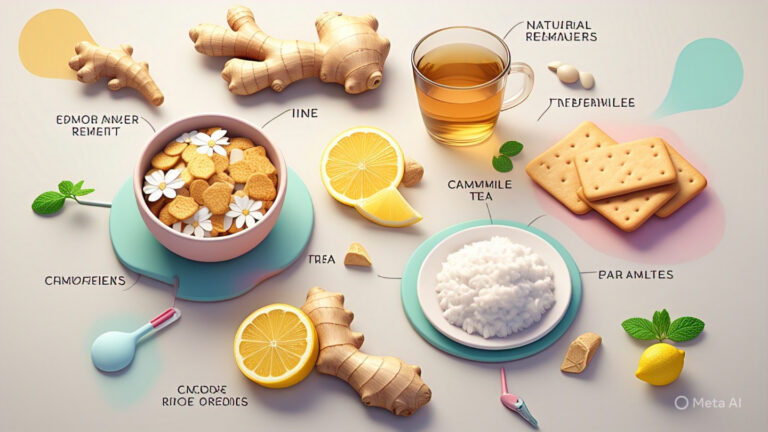Home Remedies for a Very Sore Throat: Natural Relief in 2025
Estimated reading time: 8 minutes
Key Takeaways
- Simple home remedies like saltwater gargles and honey drinks can ease a very sore throat effectively.
- Understanding the cause—viral, bacterial, or irritants—helps tailor the right natural solution.
- Hydration and rest are foundational to recovery and preventing worsening dryness.
- Know when to seek medical help if symptoms like high fever or severe pain persist beyond a few days.
Table of Contents
- Introduction: Finding Comfort for a Very Sore Throat
- Causes and Symptoms of a Very Sore Throat
- Top 10 Home Remedies for a Very Sore Throat
- Additional Tips to Soothe a Very Sore Throat
- Precautions and Limitations of Home Remedies
- When to Seek Medical Attention for a Very Sore Throat
- Why Trust WikiHomeRemedies for Sore Throat Advice?
- Frequently Asked Questions (FAQs) About Sore Throat Remedies
Introduction: Finding Comfort for a Very Sore Throat
Dealing with a very sore throat can drain your energy and steal your focus. The raw, burning pain often makes swallowing or speaking feel unbearable, and finding quick relief becomes a priority. At WikiHomeRemedies, we understand how this discomfort disrupts your day, and we’re here to guide you toward soothing, natural solutions right from your home.
Sore throats are incredibly common, with millions experiencing them yearly due to respiratory infections, as noted by the World Health Organization. This article offers hope through home remedies for a very sore throat, tailored to ease your pain naturally. We’ll explore the causes, symptoms, and practical remedies you can try today, alongside essential tips, safety precautions, and signs that indicate medical help is needed. For more insights on general sore throat relief, check out our comprehensive guide here: Home Remedies for Sore Throat. Let’s walk this path together toward relief.
Causes and Symptoms of a Very Sore Throat
A very sore throat often stems from everyday triggers that inflame the delicate tissues in your throat. Viral infections, including the common cold or flu, are the leading culprits, as highlighted by sources like the Mayo Clinic. Bacterial infections, such as strep throat, can also cause intense pain, while allergies, dry air, or irritants like smoke add to the list of potential agitators.
When this discomfort strikes, you might notice severe pain that worsens with swallowing. Other signs could include a scratchy or hoarse voice, swollen glands in your neck, or even a fever if an infection is at play. It’s worth recognizing the difference between a mild irritation, often manageable at home, and a severe case that lingers or brings high fever—indicators that professional care might be necessary. For a deeper dive into managing severe sore throat symptoms, see our detailed guide: Home Remedies for Severe Sore Throat.
Understanding whether your sore throat is a passing annoyance or something deeper helps in choosing the right approach. For many, especially with viral causes, natural remedies bring significant relief. Let’s dive into solutions that can calm that burning sensation and help you feel like yourself again.
Top 10 Home Remedies for a Very Sore Throat
Navigating a very sore throat calls for gentle, effective solutions you can prepare at home. Below, we’ve gathered ten natural remedies backed by tradition and science to ease your discomfort. Each comes with clear steps and precautions to ensure safe use. If you’re also dealing with inflamed throat tissues, explore additional remedies in this helpful article: Home Remedies for Inflamed Throat.
Saltwater Gargle
A saltwater gargle stands as a time-tested way to reduce throat inflammation and clear out bacteria. Research from health authorities like the NIH supports its ability to soothe irritated tissues.
- Mix half a teaspoon of salt in 8 ounces (about 240 milliliters) of warm water.
- Stir until the salt dissolves completely.
- Gargle for 15–30 seconds, then spit out—don’t swallow.
- Repeat 2–3 times daily for best results.
This remedy is safe for most, though overuse can dry out your mouth. Keep it simple and consistent for relief.
Honey and Lemon Drink
Honey’s natural antimicrobial properties pair beautifully with lemon’s vitamin C to calm a sore throat. This blend offers a comforting warmth that coats and soothes.
- Warm 1 cup (240 ml) of water—just hot enough to sip.
- Stir in 1 tablespoon of honey and the juice of half a lemon.
- Drink slowly to let the mixture coat your throat.
- Use 1–2 times daily as needed.
Remember, honey isn’t safe for children under 1 year due to botulism risks, per pediatric guidelines. For others, it’s a sweet path to ease pain.
Ginger Tea with Turmeric
Ginger and turmeric bring powerful anti-inflammatory effects to the table, helping to tame swelling in your throat. Their immune-boosting nature adds an extra layer of support.
- Peel and slice a 1-inch (2.5 cm) piece of fresh ginger.
- Add it to 2 cups (480 ml) of boiling water with a pinch of turmeric.
- Simmer for 10 minutes, strain, and sip warm.
- Repeat 1–2 times a day.
This warming drink suits most, though those with stomach sensitivities should start small. It’s a vibrant option for throat comfort.
Chamomile Tea
Chamomile tea offers a calming touch, reducing throat swelling with its mild anti-inflammatory properties. Its gentle nature makes it a favorite for relaxation and relief.
- Steep 1 chamomile tea bag or 1 teaspoon of dried chamomile in 1 cup (240 ml) of hot water.
- Let it sit for 5 minutes, then remove the bag or strain.
- Sip slowly while warm, 1–2 times daily.
This remedy is broadly safe, though rare allergies to chamomile exist. It’s a soft, floral way to ease irritation.
Apple Cider Vinegar Rinse
Apple cider vinegar carries antibacterial traits, often used traditionally to fight throat infections. Diluted properly, it can offer a cleansing rinse.
- Mix 1 tablespoon of raw apple cider vinegar in 1 cup (240 ml) of warm water.
- Gargle for 15–20 seconds, then spit out—avoid swallowing.
- Use once daily, as overuse may harm tooth enamel.
Those with sensitive teeth or stomach issues should skip this. Used carefully, it’s a sharp tool against soreness.
Marshmallow Root Tea
Marshmallow root contains mucilage, a gel-like substance that coats and protects your throat. It’s a lesser-known but effective traditional remedy.
- Add 1 tablespoon of dried marshmallow root to 1 cup (240 ml) of boiling water.
- Steep for 10–15 minutes, strain, and drink warm.
- Use once daily to coat irritated tissues.
Check for allergies, as reactions are rare but possible. It’s a velvety option if you’re seeking something unique.
Warm Broths or Soups
Warm broths and soups hydrate while delivering comforting warmth to a sore throat. They also provide nutrients during recovery.
- Heat a low-sodium chicken or vegetable broth until steaming.
- Sip slowly from a mug or bowl, 1–2 servings daily.
- Avoid overly salty or spicy options that might irritate.
This suits nearly everyone and doubles as nourishment. It’s a savory embrace when you’re under the weather.
Peppermint Tea or Steam
Peppermint brings a cooling sensation that can relieve throat congestion and mild pain. Its menthol content helps open airways.
- Steep 1 peppermint tea bag in 1 cup (240 ml) of hot water for 5 minutes.
- Or, add a few peppermint leaves to boiling water for steam inhalation.
- Sip or inhale 1–2 times daily.
Avoid if you have reflux issues, as peppermint can worsen them. Otherwise, it’s a refreshing choice for clarity.
Licorice Root Gargle
Licorice root holds anti-inflammatory benefits, with small studies suggesting throat-soothing effects. It’s a traditional fix in many cultures.
- Boil 1 teaspoon of dried licorice root in 1 cup (240 ml) of water for 5 minutes.
- Cool slightly, strain, and gargle for 15–30 seconds, then spit.
- Use once daily, avoiding overuse.
Those with high blood pressure should consult a doctor due to potential side effects. Used sparingly, it’s a distinct remedy.
Hydration and Humidifiers
Keeping your throat moist prevents worsening dryness, a key factor in soreness. Hydration and humidifiers work hand in hand for this.
- Drink water regularly, aiming for 8–10 glasses (2–2.5 liters) daily.
- Use a humidifier in your room, especially at night.
- Monitor for consistent moisture without overdoing it.
This is safe for all and foundational to recovery. It’s a straightforward step often overlooked.
Additional Tips to Soothe a Very Sore Throat
Beyond specific remedies, small changes in your routine can support healing. Resting your voice by speaking less helps reduce strain on inflamed tissues. Try to steer clear of irritants like cigarette smoke or overly spicy foods that might worsen the burn.
Inhaling steam from a hot shower or a bowl of warm water can add moisture to dry airways, easing discomfort. Opt for soft, easy-to-swallow foods like oatmeal or mashed potatoes, and keep warm liquids handy to maintain hydration. These simple tweaks, backed by general health advice from sources like WebMD, create a nurturing environment for your throat to mend.
Precautions and Limitations of Home Remedies
While natural solutions bring comfort, they come with boundaries to respect. Not every remedy fits every person, and knowing these limits keeps you safe. For instance, honey poses a risk to infants under 1 year due to potential botulism, as warned by the American Academy of Pediatrics, and apple cider vinegar might harm tooth enamel or upset sensitive stomachs if overused.
Over-reliance on any single approach can delay needed care if symptoms persist. Home remedies complement but don’t replace medical treatment for severe infections like strep throat. Always monitor how your body responds, and err on the side of caution if something feels off. Your well-being remains the priority as you explore nature’s offerings.
When to Seek Medical Attention for a Very Sore Throat
A very sore throat can sometimes signal more than a passing irritation. If you notice red flags like a high fever above 101°F (38.3°C), trouble breathing, or pain lasting beyond 3–4 days, it’s time to consult a healthcare provider. Visible pus on your tonsils or severe swelling could point to conditions like strep throat or tonsillitis, often needing antibiotics, according to CDC guidelines.
Don’t hesitate if symptoms intensify or linger despite home care. Seeking timely help prevents complications and ensures proper treatment. We’re here to support your journey, but professional insight is vital when nature’s tools fall short. For related advice on flu symptoms that often accompany a sore throat, refer to our guide: Home Remedies for Influenza.
Why Trust WikiHomeRemedies for Sore Throat Advice?
Navigating health concerns like a sore throat requires guidance you can rely on. At WikiHomeRemedies, we anchor our advice in evidence from respected sources like the NIH, Mayo Clinic, and WHO. Our commitment lies in sifting through research and real-world experiences to bring you safe, practical solutions.
Every piece of content undergoes scrutiny to ensure accuracy and relevance. We aim to be your steadfast companion, blending scientific grounding with nature’s wisdom. Trust us to illuminate paths to wellness with clarity and care tailored just for you.
Frequently Asked Questions (FAQs) About Sore Throat Remedies
- How long does a sore throat last with home remedies?
Most viral sore throats ease in 3–7 days with consistent care, per WebMD insights. Remedies can reduce discomfort, but persistence beyond this window suggests seeing a doctor. - Can I combine multiple remedies for faster relief?
Yes, many can be paired—like saltwater gargles with honey drinks—if tolerated. Avoid overuse and watch for reactions, prioritizing hydration alongside other methods. - Are home remedies safe for children or pregnant women?
Some, like warm broths, work for most, but honey is unsafe for infants under 1 year. Pregnant women should consult healthcare providers before using herbal options like licorice root. - What if my sore throat keeps coming back?
Recurring issues might signal allergies, reflux, or infections needing medical evaluation. Track triggers and seek a professional opinion to address underlying causes. For additional tips on relieving nasal congestion often linked with sore throats, check out: Home Remedies for Stuffy Nose.










